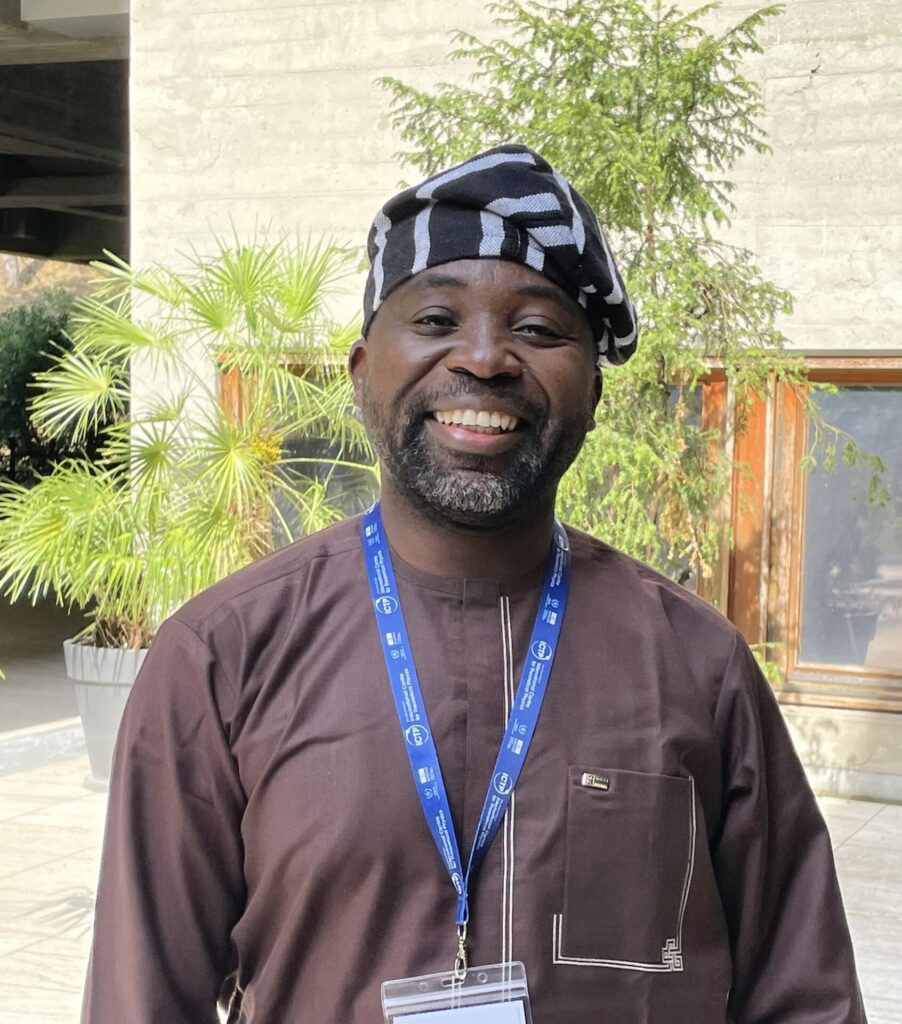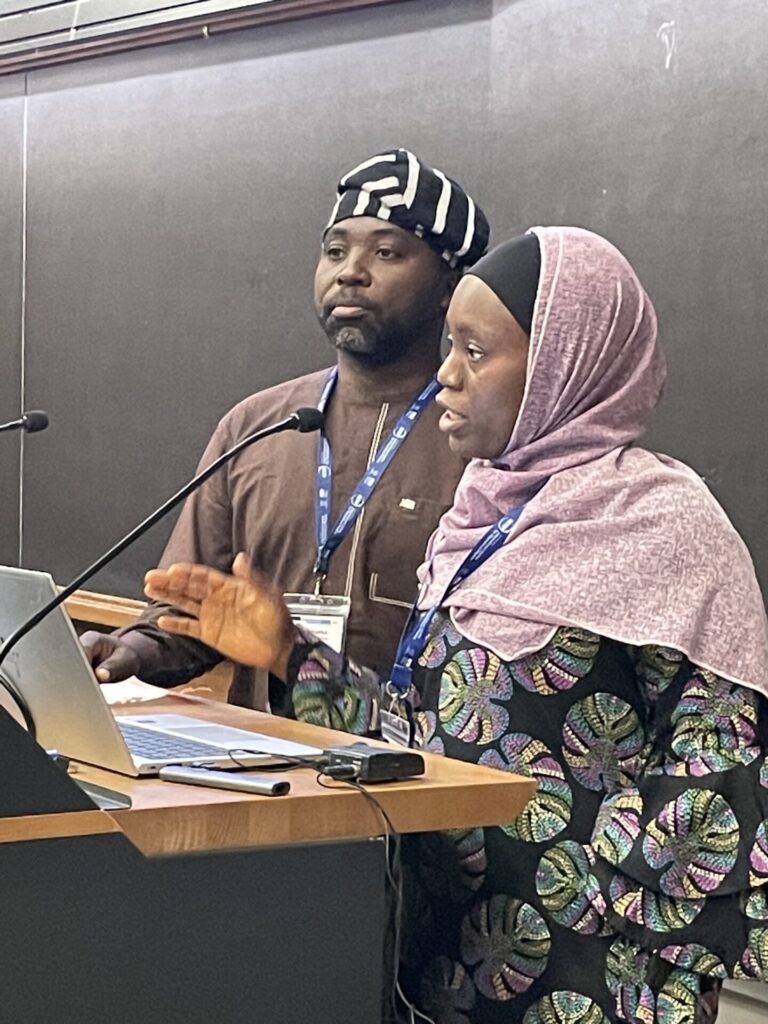My name is Nathan Awuapila. I work for the Energy Commission of Nigeria which is an agency of the government that is statutorily responsible for strategic planning and coordination of national policies in the field of energy in all its ramifications. I’ve worked there for fourteen years.

Why are you attending EMP-G?
My work is in the energy policy and planning space, so I’ve had the opportunity to utilize some modelling tools. We use MAED (Model for the Analysis of Energy Demand), and we also use MESSAGE (Model for Energy Supply Strategy and General Environmental Impacts), which takes care of the supply side. Recently, we have also adopted the Energy Calculator Model called the Nigerian Energy Calculator (NECAL2060) which was developed with the financial and technical support of the UK Department for Business, Energy and Industrial Strategy (BEIS). The Calculator is a uniquely open and transparent energy planning model and tool that can be used by governments, researchers, stakeholders, and the public to understand and develop evidence-based policies and strengthen sustainable pathways and net zero energy transition planning. So, with that in mind, I felt that it was necessary for me to improve my knowledge and skill in modelling, which is why I’m here for the Energy Access Explorer.
And how has your experience been?
It’s been really, really interesting. Most of the tools I mentioned are basically optimization tools. But the Energy Access Explorer, is a GIS-based tool, which basically tries to identify the exact location and areas that really need such intervention. We can plan for the demand and come up with the supply but who exactly needs that supply? So, the Energy Access Explorer really identifies the location; it’s fine-tuning where the neighbourhoods are using geospatial data analysis.

What difference will it make to you, being able to do that?
Well, I’m going to marry all these experiences together: determine the demand, determine the supply, and then prioritize the area that really, really needs the supply. I’m bringing three aspects together into one solution.
I suppose you get better value for money, don’t you, in terms of your investment?
Yes, because from experience in Nigeria, we have this issue of locating projects where they are really not needed. Fine, it can be utilized, but there are some persons out there that actually have zero supply. So, we should be looking at areas where, even if we can’t provide 100% of it, they should have something which can be built on, in order to improve on our energy supply to our population.
How do you find being in with people from different countries with different levels of experience?
I’ve been going around the world for a while, mixing with people from diverse backgrounds and beliefs so, it’s not new to me, and I’ve made a couple of friends around the world. I’m really privileged to be here to meet a new crop of people. Fortunately, this is not my first time in Italy. I was at the European University Institute for 10 months, where I worked as a research fellow in Florence under the School of Transnational Governance’s (STG) Policy Leaders Fellowship Program. So, being in Italy now I feel very comfortable.
And did their points of view help you?
We learned from each other. We were able to help them as well, so it’s a win-win thing.
Tell me a little bit about your early career.
I studied physics at undergraduate level and did a master’s in environmental physics. Shortly after graduation, I had the opportunity to get this job, and I grew through the ranks. And I’m still hoping to grow and add value to society.
And what is the situation in Nigeria in terms of the plans it has and the barriers it faces?
We have enormous plans and well-written policies, but I think the bottlenecks come from the political will to implement those policies. You might have all the policy documents, but when you don’t implement them, they become useless.
So, those are challenges – implementation and political will. Presumably finance is a challenge as well.
Yes, finance is, but I think in the Global South, we misplace priorities, and we talk about a lack of resources, but I say, come on, we are the resources. Coming from Nigeria, we have huge natural resources, both energy and non-energy resources. So, it’s just misplaced priorities in terms of knowing what to do as a country.
I see. So, you think the resources you have would, for example, pay for the things that you want to do or would attract investment from people?
Yes. In Nigeria, we are a consumer nation, unfortunately. We lack technological expertise. And we still need financing. But financing works both ways. Even the most developed nations still borrow money to finance their growth. So, yes, financing is a challenge but in terms of human capital from my country, we have enough of it.
Sometimes, investors say that they can’t find projects that are credible enough to support because the business plans don’t have the data. Where is Nigeria in terms of that?
The credibility depends on what an investor would want to achieve or maybe put his or her money into, right? Nigeria has the market. If one would want to invest, he’s welcome. When you meet with the relevant stakeholders, you find a way to de-risk a project because everyone, as a Nigerian, would want the country to develop. So, you should be able to come up with ideas to help an investor in building a credible market.
So, do you think the problem is that investors are too risk-averse?
I think so, yes. But maybe you can’t sit on the outside and envisage the risk accurately. You need to come in and see if it can be done. Come and negotiate and find out what it’s really like.
Okay. Anything else that you would like to say about your experience or how you’re going to use the training you’ve had now?
Yes, definitely. As I mentioned earlier, the experience has been impressive. I’m really, really impressed. I also wish to thank my facilitator, Santiago, who handled the Energy Access Explorer model. He has really been wonderful. We have already set up an instrument on how to continue the communication going forward and possibly look at certain projects together. As I mentioned, I’ve been in the planning space in the energy sector for many years and I really hope to utilize this training in terms of improving and providing services for my country and the world at large.
Excellent. Thanks for talking to us.
